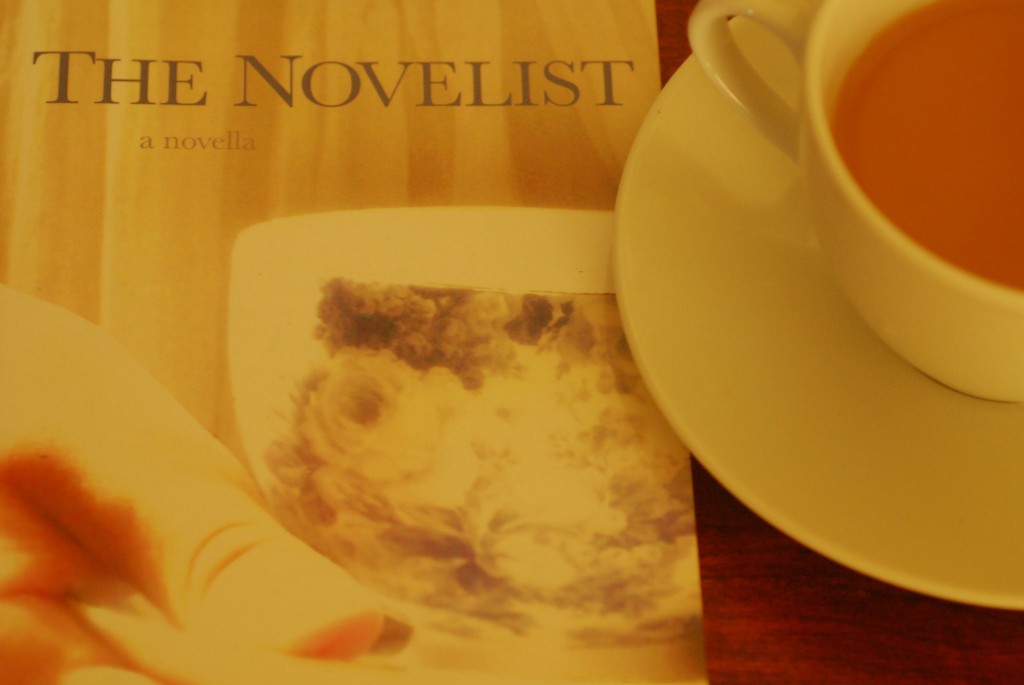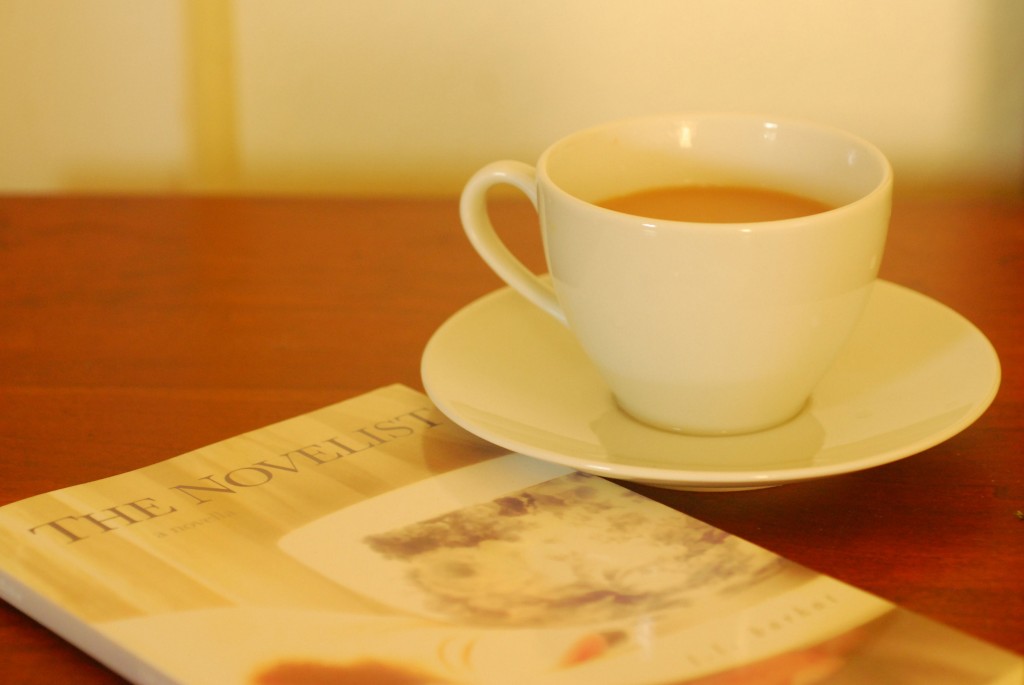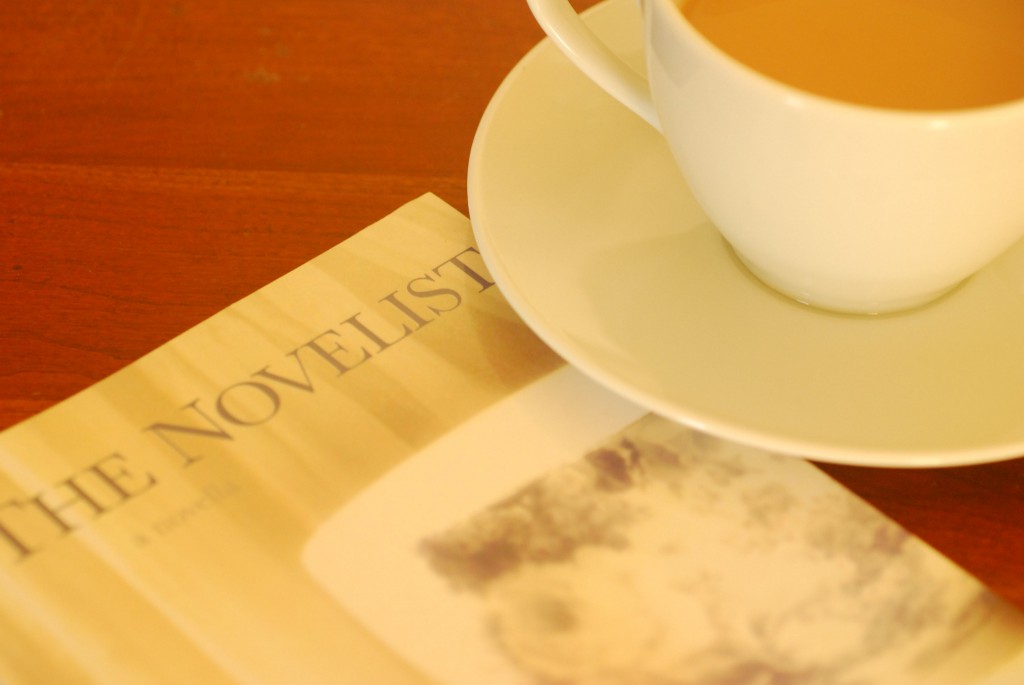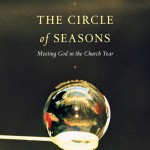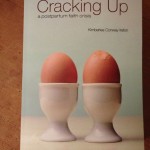When poet Laura’s friend Megan dares her to write a novel by September, Laura lies down on her kitchen floor and hopes to die of a worm.
It was the worm that hooked me. Really. I read the first chapter of The Novelist by L.L. Barkat and then bought the book. I wasn’t worried that Laura was really going to die of a worm, but I already knew I liked her and I wanted to get to know her better.
For me, a novel is all about the characters, and The Novelist has memorable characters in spades. There’s the main character, Laura, lying on her kitchen floor; the tea empress Megan; ex-boyfriend Geoffrey; and poet James; not to mention L.L. Barkat herself who puts in a couple of appearances.
To be honest, I was skeptical about this book. I know this is L.L. Barkat’s first foray into fiction, and I also know she whipped this book out in a few weeks. So really, how good could it be?
Pretty dang good, actually. It’s woven together like a Mexican blanket or even a medieval tapestry, threads running in and out and then back in again to make a compelling and thought-provoking whole. So I console myself with the thought that this book has been percolating inside L.L.’s capacious brain for a few decades at least. I’m not entirely sure this is true, but since it’s holding together my fragile sense of self, I decided not to ask L.L. about it when I interviewed her. No need to mess with fragility, right?
Instead, I asked her about truth, fiction, poetry, and new beginnings; you know, the easy stuff.
KCI: Megan Willome says she didn’t dare you to write a novel before September. Is that true? And if it is, what was the catalyst for this novella?
LLB: Do you believe everything Megan tells you? We need to talk.
[Interviewer’s note: Elsewhere Ms. Barkat says of her reason for writing: “It was the tea.” Alrighty then, Alice.]
KCI:In your previous book, Rumors of Water, written and published last year, you write, “Sara wants me to write a fiction book, and I want to do it, but I’m not ready to invest the time it would take to learn that special craft.” What changed in the fewer than 365 days since you wrote those words that made you realize you were ready—or if not ready, then ready to plunge in anyway?
LLB: Not ready. Never ready to feel foolish. Which is what I felt when I started. Oh, and what I felt around the middle of the project. By the end, I gave it up and realized I had, in fact, made it. I was going to have a fiction story in my hands if I just made a few more 4 a.m. jaunts to the back porch.
Really, it was a dare I gave myself. A dare to become a beginner again. After three non-fiction books and enough poetry to populate a small island, I figured it was time to take the fiction risk. The worst thing a writer can do, in my opinion, is begin to repeat herself. I wanted to speak new language.
KCI:Poetry tells part of the novella’s story. In fact, the first poem of yours I ever read, the one about Li Po, is in this book. I loved this poem so much I actually bought your poetry collection, just for this poem…only to find it wasn’t there! Anyhoo, which came first: the poems or the story? And if the poems (or even just even some of them) came first, how did you weave them together so they belonged in the story?
LLB: The poems. No, the story. Wait. What was the question?
Weaving is what I do. The more seemingly-disparate the threads, the better. Such a joyful challenge for the brain.
That’s why I had so much fun writing this book. It’s not just the poems and the story that needed weaving. It’s tea, Mary Shelley, Genji—a medieval fiction work as famous as Shakespeare’s plays (famous in Japan, anyway)—and so much more. Taking all these things and making sense of them, using them to play off and with one another. Great fun.
KCI:Your book is in some ways a metastory: you, the author, appear as a minor character; your business ventures also make appearances. Tell me a bit about why you made the choice to include yourself and your real life community. And then I’d love to hear how it feels to be a character in your own novel.
LLB: Aren’t you a character in your own writing? (Admit it, you are :))
The Novelist makes light of the writer’s reality we all know is true (our own presence in our work) and brings it to the surface by making it over-obvious. The main character is named Laura. She’s a poet, like I am. She knows my friends Claire Burge and James Cummins. She even knows me. Well, her friend Megan has read my book, and she later buys my book because she hears it’s pretty good. How fun is that? To take on the views of my own readers and use them for and “against” me?
KCI:The book explores ideas of truth and fiction, and because of its meta-ness (sorry!), it embodies the tension between truth and fiction, too. I’m curious how these issues/tensions played out in the writing itself.
LLB: I stole things from life, and I turned them upside down and inside out. For instance, there is a real frog cup somewhere in this world. I don’t have it. My sister doesn’t have it. Truth be told, maybe I broke it once. I don’t remember. An item like that; it’s a perfect candidate for a writer’s thievery.
When I asked my real friend James Cummins if he was okay about being in the book, even though I’d fictionalized his life, he said yes. Because everything was true. And even if it wasn’t, it would be. Does that make sense? It made sense to James, and to me.
[Interviewer’s note: Uh, no, actually, that doesn’t make sense. For readers who are like me, I think (maybe) what L.L. is saying is that “it would be” true because even if it isn’t true in “real life,” it’s true in the world of the novel.]
KCI: Finally (and inevitably), in the movie version of The Novelist, who plays Laura? Geoffrey? Megan? James? And, of course, you? (Personally, I think you should play yourself.)
LLB: I think I should do that Eddie Murphy thing and play all the characters. Wouldn’t that be something? I’d get to be a blocked writer, a Yale professor, a tea empress, a magical poet, a timid child who lived on a farm, and… well, I’d even get to be me, which just seems fun if I could do it and get paid for the privilege.
*****
I’d like to get paid for the privilege of being me, too…though come to think of it, there are days when it’s a pretty dubious privilege. Maybe I should go back to novel-writing after all.
While I’m rummaging around in my basement for a moldering copy of the novel I wrote once upon a time, you, dear readers, might be interested in reading one that’s actually finished and polished to a lovely sheen. If so, I recommend The Novelist for your reading pleasure. Enjoy!
